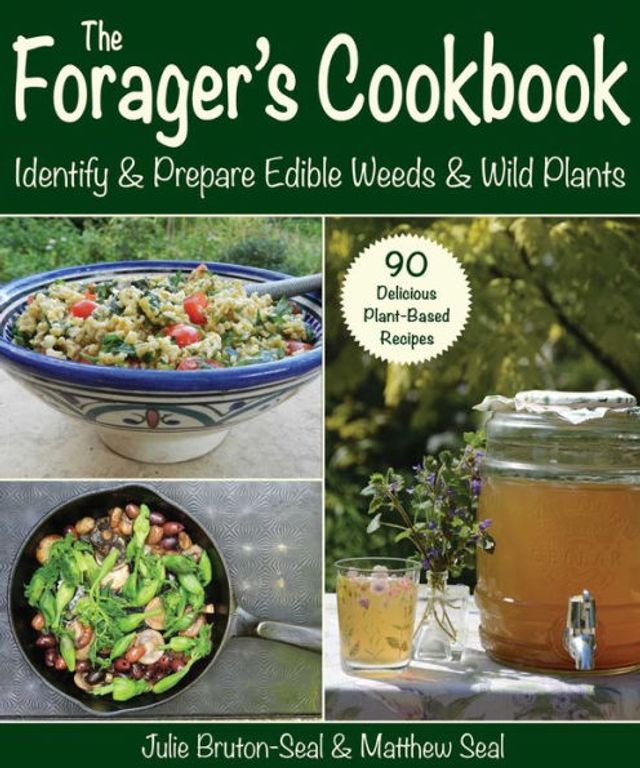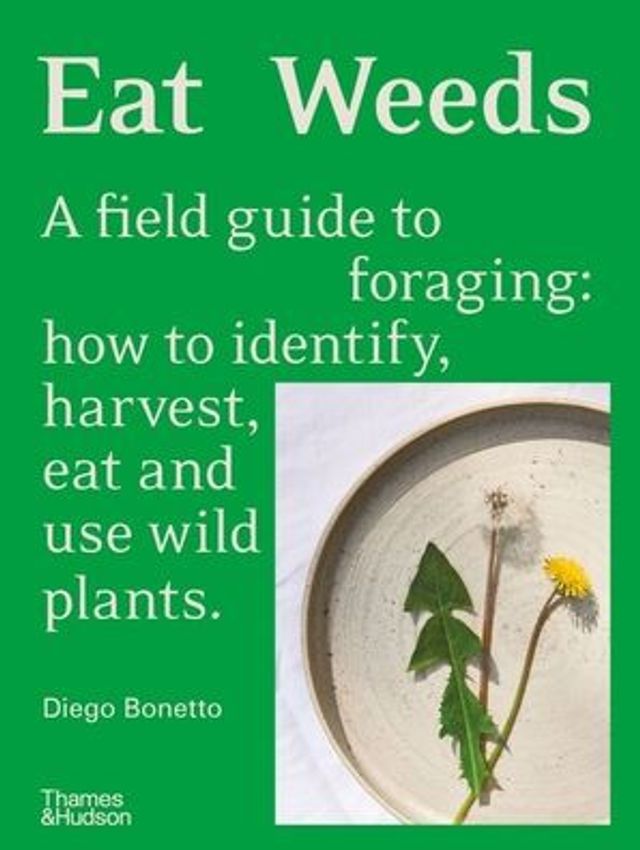Home
The Forager's Cookbook: Identify & Prepare Edible Weeds Wild Plants
Barnes and Noble
The Forager's Cookbook: Identify & Prepare Edible Weeds Wild Plants
Current price: $19.99


Barnes and Noble
The Forager's Cookbook: Identify & Prepare Edible Weeds Wild Plants
Current price: $19.99
Size: Paperback
Loading Inventory...
*Product information may vary - to confirm product availability, pricing, shipping and return information please contact Barnes and Noble
More than a recipe book, more than a foraging book, more than a guide to herbal medicine. Discover 90 exciting recipes showcasing weeds that are delicious, nutritious, medicinal, too good to waste—and free!
Why should we eat our weeds? Because they are delicious, adding a palate of new flavors in everyday cooking. They are also nutritious and too good to waste. Weeds are actually more nutritious than most of the vegetables we grow or buy. They often have deep roots that loosen the soil and bring minerals up from far below. Weeds can help cover the soil, keep moisture in it, and preserve its fertility. They offer a second crop among our other plants, for free, and are often available in the late winter and early spring when our vegetables are yet to get going. When it's time to weed, the edible weeds can be eaten. Why throw perfectly good food on the compost heap?
With weeds, as with all wild plants you may be planning to eat, proper ID is essential. Rule number one is eat only what you are sure of. In this book, Julie Bruton-Seal and Matthew Seal have provided clear photographs and other written identification details for twenty-two common weeds. They also give guidance on how to harvest safely and responsibly. And you'll find ninety delicious recipes highlighting your foraged goodies. Recipes include:
Chickweed Pesto
Daisy Tea
Dandelion Flower Jam
Elderberry Vinegar
Orache Tart
Ground Ivy Hot Cross Buns
Hogweed Paella
Mugwort and Mushroom Soup
And more!
Why should we eat our weeds? Because they are delicious, adding a palate of new flavors in everyday cooking. They are also nutritious and too good to waste. Weeds are actually more nutritious than most of the vegetables we grow or buy. They often have deep roots that loosen the soil and bring minerals up from far below. Weeds can help cover the soil, keep moisture in it, and preserve its fertility. They offer a second crop among our other plants, for free, and are often available in the late winter and early spring when our vegetables are yet to get going. When it's time to weed, the edible weeds can be eaten. Why throw perfectly good food on the compost heap?
With weeds, as with all wild plants you may be planning to eat, proper ID is essential. Rule number one is eat only what you are sure of. In this book, Julie Bruton-Seal and Matthew Seal have provided clear photographs and other written identification details for twenty-two common weeds. They also give guidance on how to harvest safely and responsibly. And you'll find ninety delicious recipes highlighting your foraged goodies. Recipes include:
Chickweed Pesto
Daisy Tea
Dandelion Flower Jam
Elderberry Vinegar
Orache Tart
Ground Ivy Hot Cross Buns
Hogweed Paella
Mugwort and Mushroom Soup
And more!


















